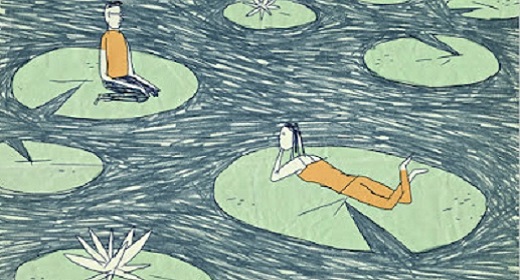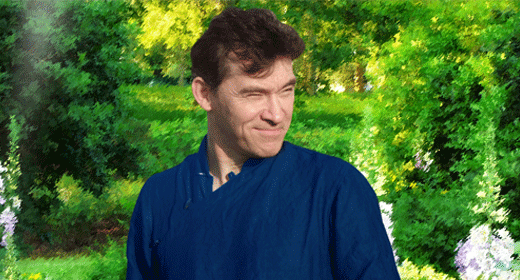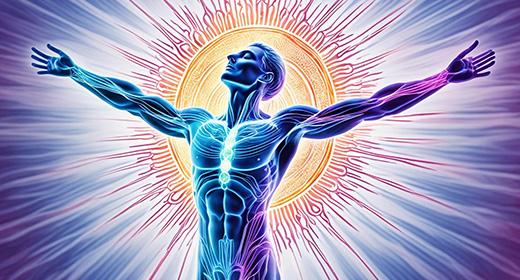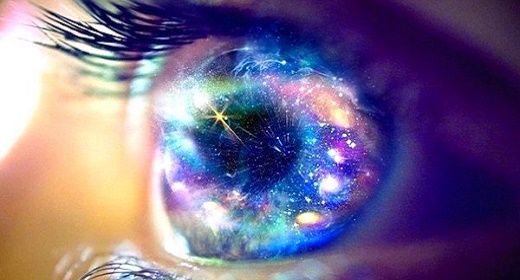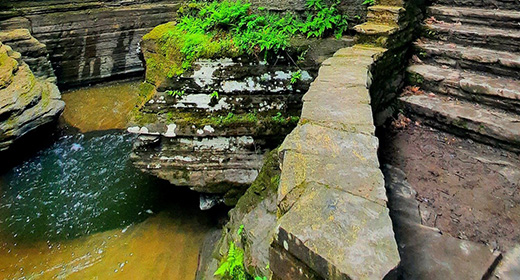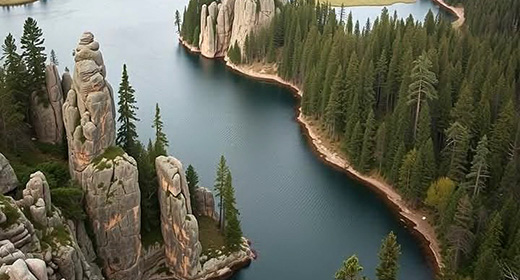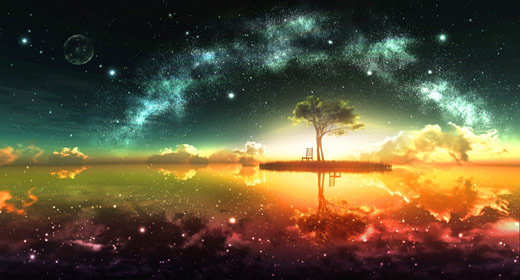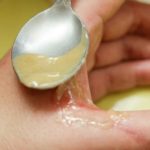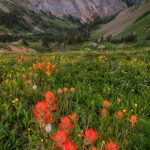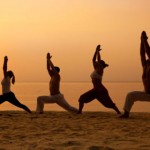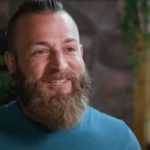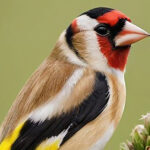Donna Quesada: I’m on board, but I want to flesh out these questions that I’ve heard people ask. For example,
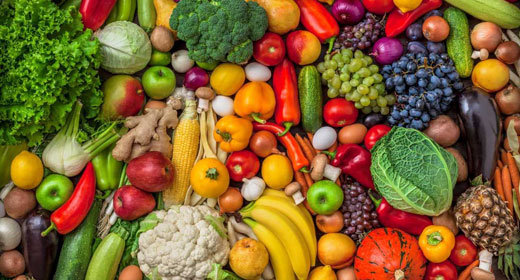
I’ve been on road trips and people look at the wide-open rolling hills in California and say “There is plenty of room… why not let the cows roam free… there are some cows there. Wonderful! Why do we need factory farms? Why not let them roam free like that?” Is that just an illusion of space?
John Robbins: There are a few cows in California. They are not dairy cows grazing around. They are all in confinement. They may never see a blade of grass. But Beef Cattle… There are some organizations that when they are young, put them on pasture. But soon enough, they move them into feed lots. Different organizations have different ages. But they all end up in feed lots. And if you drive up I-5, in California, you will see the Harris Ranch. It’s owned by John and Carol Harris. It’s one of the largest beef cattle feed lots in the world. It stinks to high heaven. The animals are confined. They have very little space. That’s where U.S.beef is coming from. 99% of US Beef is feed lot beef.
In order to keep the animals alive and not dying under those conditions, they feed them foodstuffs that are completely unnatural to them and they keep them in these grotesque conditions. They have to feed them antibiotics. Every meal they have in their life is dosed with antibiotics. That keeps them alive under these conditions. But that is also a certain way to breed antibiotic resistant bacteria, which we are doing, by doing that. Those bacteria then proliferate in the environment, and are undermining the potency of our antibiotics, which are our strongest weapons against infectious diseases. There are many bacterial illnesses that used to be very serious that haven’t been serious for quite a while because we have been able to treat them with antibiotics. And every health organization is warning us that at the rate we are going,we won’t have that ability. And hundreds of millions, maybe billions, will die from infectious disease, that today, we can still treat effectively… inexpensively, with anti-biotics.
But the ability of those antibiotics to be effective is being destroyed by the breeding of anti-biotic resistant bacteria. Sometimes the over prescription of antibiotics is blamed for that by doctors. And that does play a role. But a very small role, compared to the breeding of anti-biotic resistant bacteria in factory farms. It’s insane what we are doing to have cheap burgers. That’s why I say we don’t make people happy; we make them sick. We provide momentary pleasure and immediate gratification. We make them sick. We’re killing the world. We’re killing Western Medicine’s most potent weapon. And we are being grotesquely cruel to the animals. And you know there is another piece to this too.
DONNA: What is that?
JOHN: For some years now, we have been making strides globally against world hunger. The number of people who are dying of malnutrition or suffering from malnutrition has been decreasing annually. But about 45 years ago, we plateaued and now it’s getting worse. There are many reasons for this. It’s a tragedy. Scandal. But one of the big ones is that it takes 12 pounds of grain on average, to make the average pound of feed lot beef. It takes one pound of grain to make one pound of bread or rice for people to eat. By cycling our grain through livestock, it’s protein factory in reverse. It’s a food factory in reverse. We are wasting most of the food and most of the energy that grows that food… to the land that is used to produce that food. We are wasting it so that the wealthy of the world…
DONNA: How can that be?… for those that aren’t familiar with this process… Is it that the cow is an inefficient converter?
JOHN: Yes, it is. It’s standing around there. And most of the grain that it eats… it converts into body heat. It would convert into body movement, but they restrain it to increase the ratio. The animals don’t move much. But it’s still going into body heat and it’s going into parts of the body that aren’t edible. It goes into their manure and greenhouse gases.
DONNA: Which goes into our water.
JOHN: It goes into our water. It goes into our atmosphere. The cattle have four stomachs. And they eruct. It’s a word that refers to belching and also farting. It’s Methane coming out. A very potent, very concentrated greenhouse gas. This is yet another way that this system makes no sense.
DONNA: So, if the grain were being fed directly to people…
JOHN: We could feed so many more people. Inexpensively. We don’t look at that, but by eating high on the food chain we are consuming more resources. And when we do that, we are competing with the rich. The rich that can afford that are competing with the poor. It pushes the price of grain up worldwide. And that, unfortunately, leads to world hunger increasing. If we were serious about wanting to feed everybody a healthy and basic simple diet… We could do that if we ate far less meat. We can’t do that if we continue to eat the levels of meat that we have come to associate as the reward of affluence. We aspire to it and we propagate that aspiration worldwide. And that is a tragedy.
DONNA: Are we getting anywhere? Taking world population… The under developed nations are still growing in their populations and they might not have access to this kind of information that could save their lives. Is it realistic to think we are getting anywhere? Are we getting anywhere with all this?
John: Well, we are getting where we are getting. Do we have grounds for hope?
DONNA: Do we? Are things getting better or worse?
JOHN: Both. And I think what is important is that we never take our hope for granted. It always requires effort. It always requires elbow grease, sweat, and grit, and facing the forces that profit from oppression of the human spirit, and the human mind, and body… and profit from keeping us ignorant and unaware. But at the same time, it’s also important to me that we maintain the recognition that even the small things that we do… they may seem like drops in the bucket. In fact, they may seem like drops in an enormous bucket. But if there are enough of us doing it then it ceases to be a drop. It overflows. It becomes the tide of history turning. And we don’t know when that point will be… when that turning point, is reached.
So, we need to do everything we can. Regardless of whether we can see the positive results. Regardless of whether we can measure it and know if we are winning. If you only do what is needed, when you think that by doing that you are going to win…not enough of us will do it and we won’t win. We need to keep doing it because it is the right thing to do. Because it’s ethical. Because it’s appropriate. Because it gives us connection with our hearts and souls and the purpose for being alive in the first place. And it gives us connection to the beauties of this earth and the souls of other creatures. It gives us connection to our caring and compassion. We have a right to live in a compassionate world. We have a right to live in a world that isn’t based on selfishness. We have a phrase. It’s an unfortunate one. We say we are living in a dog eat dog world. Even dogs don’t eat dogs. That’s a weird phrase. And I have a friend. Chris Car. Beautiful person. When she was a little girl, she heard people talking about a dog eat dog world. She mis-heard them. She thought they said a doggy-dog world. Because that is what a little child would want. Not a dog eat dog. She couldn’t even conceive of it. Because dogs don’t eat dogs. And we think we are just selfish people and we are just destined to destroy the earth and prey on life.
I think we are more pilgrims than predators. I think we have a choice of which direction to move. Move in the direction of being a predator… being an exploiter. Seeking greed and selfishness. Or, whether we are going to honor the compassion in our hearts. Honor the truth of our connection with each other. Honor the needs of the planet. Honor the needs of our own bodies for healthy food. Make choices to not just live simply, so others may live, but to eat simply, so others may eat. And then our lives are connected to forces at work for the greater good. And when we have that connection and are in alignment with that, we get guidance. Our higher power starts to speak with us. We are aligned then with our inner wisdom and the truth of our own destiny. And then our lives start to shine brighter than we could ever imagine. Then our love begins to be potent and effective in ways that we could never dream. Then we will win even when it seemed like it was impossible.
DONNA: What has been your greatest accomplishment and also challenge?… In this mission, which, may I summarize, is to engender a plant-based diet? Would that be a fair summary of your mission?
JOHN: Well, yeah. Whole foods, plant based diet. You know, there are a lot of vegans out there that are pretty unhealthy! I don’t think it’s ever been easier to eat vegan junk food. It saddens me when I see people doing that because their health isn’t good. I want people that are eating healthily and consciously to be radiant, so, people will want what you have. And if they do want what you have, they will follow your example. But, if you are humorless… if you are not humble… if you are judgmental… if you are scolding other people… if you are not healthy yourself, you don’t set the best example. You are not infectious in the positive sense, with the joy and possibility of all this.
DONNA: So, your greatest triumph?
JOHN: I don’t know. I think the thing I feel best about is who my son is. And he’s chosen to work with me. He was just a boy when I wrote Diet for A New America. I’m now 71. He’s now 45. He’s an adult. He’s his own person. He could do whatever he wants. He’s a brilliant guy. He has lots of opportunities in life and he’s chosen… It was his and my idea that we create The Food Revolution Network. And we are doing that work together now. Just seeing the kind of human being, he is…
DONNA: I look forward to meeting him.
JOHN: I know the kind of man my father was. And my dad, from Baskin and Robbins… he was very concentrated. He could focus. He built a billion-dollar company on his own. And he and his brother in law died at the age of 54. He was part of it for a little while, but my dad… It was his company. He built Baskin and Robbins. That’s a prodigious achievement. But as a human being, he wasn’t quite as successful. As a man… as a father… as a spouse… as a citizen of his community… And, if I see myself as bridge over which life goes… from the kind of man my dad was, to the kind of man my son is, I’m just still in gratitude. I’m just still like…I don’t know if that is an achievement or something to just be grateful for. But I’ve played a role and I’m made choices along the way that have imparted that. I would consider that… my Ocean… to be my greatest achievement.
DONNA: And what about your greatest challenge?
JOHN: The fear that we all have of being greater… being bigger… being truer to who we really are. We’ve all learned to play it small. We’ve all shut down. We’ve all learned to play it safe. We’ve all learned to defend ourselves. To be guarded. To protect ourselves. And we don’t often realize that, as important as it is to have a healthy ego and to not be too vulnerable sometimes… It’s also very important to be vulnerable at the right times. And to be humble. And to be open and receptive to the greater wisdom, rather than to conform to the thinking patterns that may have served us at one time… may have enabled us to survive under circumstances that required that.
Now do those patterns of thinking and the actions that follow from them… do those really serve us? Or, is there something better, that is possible for us? Something greater? Something more beautiful? Something more soulful? Something more connecting? Something more heart-ful? Something that is more powerful in its impact on the planet? And I think that fear lives in me. It lives in everyone I know.
And one of the reasons I loved Dr King was that he had fears too. He had his defects… his flaws. But he didn’t let them stop him. And they didn’t keep him small. He didn’t play small. And he didn’t sell himself short. And so, even though he was killed at the age of 39… Even though his life was so dramatically cut short. And I’m still sad about that and grieve about that to this day—more than 50 years later. He accomplished more in that brief lifespan, than any of us who play it safe all the time, probably accomplish in the course of our entire lives.
And I want us all to see the opportunities that we have, to choose love instead of fear. To choose hope instead of apathy or cynicism. To choose a positive attitude with our own potentials toward life on Earth, rather than succumb to our resignation. It’s kind of running the show today. I mean, the cynicism is just out of hand. Look at our political leaders! It seams only sane to recognize the insanity there. And I don’t think the measure of true sanity is to be well adjusted to a sane society. I think the measure of true sanity is to be enlivened by the true power of your own love and your own caring and your own connection.
DONNA: Do you have a personal practice, such a meditation or Yoga, that keeps you in that heart place?
JOHN: I definitely have a personal practice. As far as keeping one, that would be asking too much. It helps me find it again. Each time I lose it… staying in it. That would be great, but I don’t. I don’t seem to be able to do that. I fall down. But some people just hurt. It hurts too much. Other people get knocked down seven times and get up eight. What’s the difference? I don’t know but when you get up… when you find your center again… when you find your power again… when you find your connection to life again, you make it easier for the next time. It starts to become easier… almost a habit, or a groove.
DONNA: Is it meditation?
JOHN: I meditate every day. I do psycho-integration practice. I used to do Yoga every day for many hours. I used to do a lot of running and a lot of other things for my health and vitality. Hiking and walking, even.
DONNA: What was it you mentioned? Your meditative work?
JOHN: It’s a psycho-physical integration practice that is derived from the Feldenkrais work. There was a man called Moshé Feldenkrais, that did a lot of body-mind integration process. It’s called by his name, Feldenkrais. It’s not well known, but it’s beautiful and I developed my own version of it, to supplant the Yoga practice, I had. I find it works better for me. I had Polio as a kid, and my lungs and legs still bear some of the consequences of that. Very serious disease. And Feldenkrais work has helped me overcome a great deal.
DONNA: I want to honor the time you’ve given us today, as we near the end of our hour. Is there anything that I didn’t ask you that I should have?
JOHN: I don’t know what you should have done. I think you’ve done beautifully.
DONNA: Is there anything you’d like to say to our viewers?
JOHN: We are each a lot more powerful than we know. We are like light bulbs that haven’t been plugged in yet… compared to the light that we could radiate and shine. So, find your way to get plugged in. Find your way, whatever it will be that is unique to you… that gives you the sense of empowerment, and vitality, and radiance, and vibrancy, so that your life becomes a statement of what you love, and who you love. So, then you give from a cup that is full rather than empty. And that’s what we need more of. So, thanks for being on the path with me and with those of us that are doing this work.
DONNA: Thank you for the work that you do. For the animals and for the planet and for all of us.
JOHN: Thank you.
DONNA: We appreciate you.
Read and Watch Part I Here: Awaken Interviews John Robbins Pt 1 – Alignment With Spirit
Read and Watch Part II Here: Awaken Interviews John Robbins Pt 2 – The Forests Are The Earth’s Lungs
John Robbins is the author of the international bestseller Diet For A New America: How Your Food Choices Affect Your Health, Happiness, and the Future of Life on Earth.
The Food Revolution:How Your Diet Can Help Save Your Life and Our World
The New Good Life: Living Better Than Ever in an Age of Less.
The Awakened Heart: Meditations on Finding Harmony in a Changing World
Reclaiming Our Health: Exploding the Medical Myth and Embracing the Source of True Healing.
May All Be Fed: Diet For a New World

